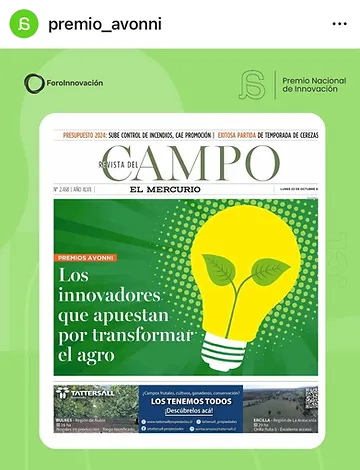RiverPLA: Revaluing Dairy Whey from Dairies

With the initial idea of manufacturing a compostable resin based on algae, which didn’t work out due to the lower import costs, industrial civil engineer Iván Pino discovered an opportunity to innovate by producing biodegradable PLA plastic. Typically made from corn starch or sugarcane, Pino found a way to use a very abundant waste in the Los Ríos Region, where he resides: whey.
Thus, he began researching with the University of Concepción the possibility of obtaining it, and the result was successful. Consequently, he founded the company River Pla to produce this bioplastic, becoming the first in Chile to manufacture PLA from whey.”
“Whey is composed of proteins and 77% lactose, from which lactide is obtained. Lactide is the precursor to obtaining polylactic acid, which, when obtained, is PLA,” he explains.
He also emphasizes that dairies and cheese factories generate large daily volumes of whey, which is considered waste. Therefore, his company is also part of a circular economy.
If, on average, it takes ten liters of milk to make one kilogram of cheese, and one kilogram of cheese produces one liter of whey, he estimates that it takes 50 liters of whey to produce one kilogram of lactic acid or PLA.
“A small cheese factory, with 70 cows, produces 20 thousand liters of whey per day. A larger company, like our partner Runca, produces 100 thousand liters per day, while one of the largest dairies in the country can produce one million liters per day,” he details.
Their goal is to build a processing plant in Máfil, in the Los Ríos Region, for which he estimates an investment of 3 million dollars would be needed, considering a production level of 20 tons per month. This would require a capital increase.
For the next year, the goal is to produce 60 tons of PLA annually, which is sold in the form of granules. They also plan to license the model to other countries.

“Our challenge today is to raise capital because the processes are already validated,” says Iván Pino.
Campo Magazine – El Mercurio